The reason for me to be intrigued by mastery was that I saw many changes happening in society and the job market. In essence work is expected to change a lot more towards the future than it has been changing in the last decades. It is called to be the Fourth Industrial Revolution. The previous one involved the transition towards new (mass-) manufacturing processes in 18th and 19th century with the rise of corporations and factories. This one is about the technological revolution and how it will impact our lives. It is not simply the automation of work, how robots will take over jobs and how jobs will disappear. It is also about how the technology will impact the way we live, work and connect with each other. Technology is for instance helping to create better treatments for all kinds of diseases. The current life expectancy of my children is already expected to be around 90 or 100. So if we then look at the current pension age of 67, this means that society (and therefore us) will have to pay for about 25 years of pension. I’m not a math wizzkid, but I can tell you that the current way of looking at work and pension won’t be sustainable. At the same time people will also become more vital and therefore are better able to work longer.
So if you start thinking about the implications of these changes for work and learning, then questions come up like:
- How can we work for a longer period of time?
- How does the concept of work needs to be changed to become more sustainable?
- How can we keep on having access to work and therefore income in the future?
- How can we as humans learn to deal with these changes?
These are for the long term, but what about the short term changes and current trends?
Flexibilization of the job market:
Although the previous changes may seem to take a while, they do come quickly. If you look at today there are also some trends that are already not in sync with the way work is currently organized. There is the system of temporary and fixed contracts. The main goal is for people to get a fixed contract, which implies that you will work for the same company until you retire. Nobody nowadays who enters the job market has that ambition. People even fear that if they start somewhere that they may end up there. I myself have already worked for 4 different employers in different fields, I have done a fulltime MBA in between and now I am an entrepreneur. And there are many more people that have started for themselves or are making switches more often.
Changing relationship between employer and employee.
Although it may sound as a no brainer, a lot of companies still act as if someone is not allowed to make a new step to a new company. Talking about a new job somewhere else is in most companies a no go. At the same time employees also dare not to openly speak about it and put a dentist-visit in their agenda when they have a job interview. In order for both companies and employees to be better prepared for future changes it is important that this will be changed. You can even change it to an advantage. If you become an employer that knows you will make a new step one day and wants you to have the biggest impact as possible in the time you work there, you take someone seriously. Chances are that the employee will be more committed and they leave as an ambassador. The biggest fear of employers here is that people may lose out on commitment. I think that it will be the other way around if you both start changing the assumptions of how you work together and what conditions both the employer and the employee need the be valuable to each other. Flexibilization is also known to be bad for employees because people are more easily fired. In my view this also shows that companies need to become more agile to adapt to all changes. So the flexibilization requires both employers and employees to build a new way of working together that is for the long term benefit of both. And I think that when employees dare to look fir their security less in the type of contract and more in themselves they will be better prepared for future changes since they start taking personal development seriously.
Meaningful work
What you also see is that people have a growing need on doing meaningful work. It is not just simply about getting the best out of yourself. It is also about having an impact. This can be as big as having a societal impact or as small as feeling valued for the value that you bring as a unique individual. You can say that we are reaching the level of self actualization in the Maslow-pyramid, 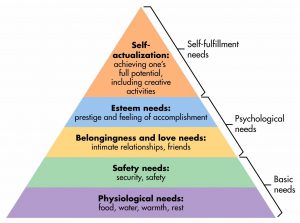 which means that people aim to reach their full potential as a unique individual. But next to that there is also a growing awareness that we need to take care of our planet and resources. This is not just for all the people but also for the companies who are expected to have a more sustainable impact that simply shareholder value. People want to contribute to something more sustainable.
which means that people aim to reach their full potential as a unique individual. But next to that there is also a growing awareness that we need to take care of our planet and resources. This is not just for all the people but also for the companies who are expected to have a more sustainable impact that simply shareholder value. People want to contribute to something more sustainable.
The way our smartphone impacts our life
Every day I am fascinated by how the smartphone has become part of our life. Everywhere you look you see people on their smartphones. It brings us access to an abundance of information worldwide. It has added a new dimension to learning because information, knowledge and inspiration is widely available. We can connect and interact easier with many people globally. At the same time it has made us addicted to our phone. It distracts our focus constantly and hinders us from having impact and attention. 
Living an online life has become more important than living an offline life with real people and has the effect that contact is more superficial and people feel more lonely. We still remain human, we want to be seen, be loved, be meaningful and have lasting and real contact with friends, family and colleagues.
The question here is how can the technology support us to make use of our unique capabilities as human beings? How can we use technology to increase the impact of learning among real people?
Birth of a new school
In the previous blog I wrote that one of the shifts that can help us deal with the changes is to adopt serial mastery in our lives. I started to think about how we can learn to work longer and be better prepared for future changes. That is how I came to the idea of building a school where people can learn the mindset and skills that can help them develop and reach their personal mastery. A school for mastery. 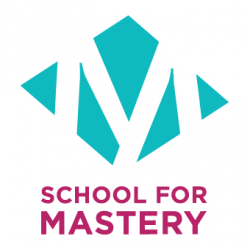 The mindset and skills we teach are relevant for everyone to change, transform and increase personal and meaningful impact. Skills like focus, making choices, self reflection, building meaningful contacts, etc. It will be a physical school where in several phases in your life you attend programs to develop your own mastery. The reason why it is physical is that I want to offer an environment that enables quality contact and builds meaningful relationships. People that contribute to the school do that from their own mastery and use it to inspire others.
The mindset and skills we teach are relevant for everyone to change, transform and increase personal and meaningful impact. Skills like focus, making choices, self reflection, building meaningful contacts, etc. It will be a physical school where in several phases in your life you attend programs to develop your own mastery. The reason why it is physical is that I want to offer an environment that enables quality contact and builds meaningful relationships. People that contribute to the school do that from their own mastery and use it to inspire others.
Off course it will take a while to have the school built physically. In order to really build the school I will tell you next time what the building blocks will be.
In the mean time I want to finish with the following question for you:
How are you developing yourself towards future work and a future impact?
Film of World Economic Forum about the 4th Industrial Revolution.
Blog 1:
Earlier this year I started the School for Mastery. Since the concept of mastery is quite new to people I will write a blog in which I will explain more what mastery is about. I will do this by sharing my own development towards mastery or by sharing stories of mastery of other people. Each blog has the purpose to explain, inspire and help you reflect on your own possible mastery.
Have fun in reading the blog and in exploring your own mastery.
Planting the seed
The crisis from within:
It was back in 2014. I was working as a talent manager for an international financial services company. It was my task to attract new trainees and help them develop towards positions as a senior leader or key expert. I had been doing that already for 6 years at that time.
What made the job challenging was the fact that in those years the financial crisis was impacting the company strongly. I had already experienced a number of restructurings with just as much different managers. Due to these dynamics it happened a few times that the recruitment was stopped and I only focussed on the development of the trainees. After two years however I hardly had anything to do because trainees had finished their traineeship.
Come up with something innovative
That was the situation in 2014. Doing nothing for a while may sound appealing but I can tell you that it only lasts for a short while. I was there to make a difference and that doesn’t happen by doing nothing. So I asked the HR-director what I could do to be of value. Her response was simple: Come up with something innovative! I was thrilled. I thought, wow, that’s cool!
Looking back it’s fun to see that I was thrilled with an assignment that was as unclear as can be. And although I could or should have asked more questions it didn’t even come in mind to do this. What actually had happened was that my question had resulted in permission to do whatever I think is relevant and make that valuable for the company. The fact that I had asked for permission shows that I wasn’t (yet) doing my work by applying my mastery.
After the permission I had to go through the uncomfortable feeling of not showing up at the office. Wasn’t I supposed to show people that I was working hard? Fortunately I allowed myself to not show up at the office sometimes for weeks.
Explore:
In order to come up with something innovative I realized that I had to step outside of my own working context. Or else I would constantly be hindered by “the way we do things around here” and not feel free enough to explore what more there is in the world.
By stepping out of the company I wanted to build a better understanding of what was happening in financial services, in the job market and in society at large. There were so many macro-economic developments happening that I wanted to understand these better and analyse what the implications of these developments could be for traineeships and talent development.
Read:
I read a lot about innovation and the future of work. One book I read that created a paradigm-shift was the book ‘The Shift, the future of work is already here’ by Lynda Gratt on. She had already done quite some research about how work is changing and what it may look like in the future. The main thing I took out of the book was that she writes about 3 shifts that are vital for people and organizations to make to be better prepared for the coming changes in work:
on. She had already done quite some research about how work is changing and what it may look like in the future. The main thing I took out of the book was that she writes about 3 shifts that are vital for people and organizations to make to be better prepared for the coming changes in work:
- Change behavior from being an eager consumer towards becoming a passionate producer.
- Shift from being an isolated competitor towards becoming an innovative connector.
- Transform from being a superficial generalist towards applying serial mastery.
This was the first time that I encountered the concept of mastery. It intrigued me so much that I wanted to learn more about it. What does it mean? In what way is this different than the current way of looking at talent development? And how can you adopt mastery in your development?
Learn about mastery:
I went to the Rijksmuseum and the Mauritshuis to learn about the concept of  mastery in the early days and what I could derive out if it for mastery today. One painting that intrigued me for instance was the painting of Rubens and Vermeer called ‘The Garden of Eden with the Fall of Man’ which is hanging in the Mauritshuis. A masterpiece created by two different masters both adding their own mastery. A beautiful example of cooperation in which the qualities of two people have created something they would not have been able to create individually.
mastery in the early days and what I could derive out if it for mastery today. One painting that intrigued me for instance was the painting of Rubens and Vermeer called ‘The Garden of Eden with the Fall of Man’ which is hanging in the Mauritshuis. A masterpiece created by two different masters both adding their own mastery. A beautiful example of cooperation in which the qualities of two people have created something they would not have been able to create individually.
Expand horizon:
I also realized that in order to really innovate I had to expand my network and meet people that came from different areas than HR and financial services and had completely different backgrounds and views on work and development. I started to visit places that didn’t seem to be logical at all. I went to airports, train stations, shopping malls, musea, walked in nature and so on. Doing this allowed me to look differently at everything and see the beauty of things that I normally don’t pay attention to. What also happened was that I started to see much more clearly what was so valuable in my own job and at my own employer, simply by stepping out and looking at it from an outside perspective.
Mastery learning:
By doing this I noticed that mastery learning can help people in all sorts of areas of expertise to develop themselves more independently. Learning is not dependent on what others think, but on what someone truly finds important and what someone wants to develop constantly and naturally. The focus is less on fulfilling certain roles or positions well and more on the tasks that you are performing. And how well you do those by making use of the skills and experience and the style and mindset you have that make you unique. And more importantly knowing why you are doing this? What’s the bigger purpose? This can help increase your impact and provide more meaning at the same time.
What can be my own mastery?
This brought me off course to the question: what could be my own mastery? What are the skills and experience that I have already built and in what way have I made a difference?
I have worked in different jobs in mental healthcare, sports, education and in financial services. In all jobs I was involved in training and coaching people. Next to that I created contexts in which the learning could take place ranging from a gym, a classroom to an office. And what people appreciated in me in all those jobs was that I was sincerely interested without being judgmental. At the same time I could be confronting and people always leave with a clear next step that fitted their own development. And finally people appreciated me because of the way I develop myself constantly and how I have dared to make choices a lot of people find difficult. And although I have developed myself quite a lot in all those years, these are elements that truly drive me and I definitely want to continue and grow even further. In what way I will tell you next time.
To finish this blog I want to pose the same question to you too:
What could be your mastery?
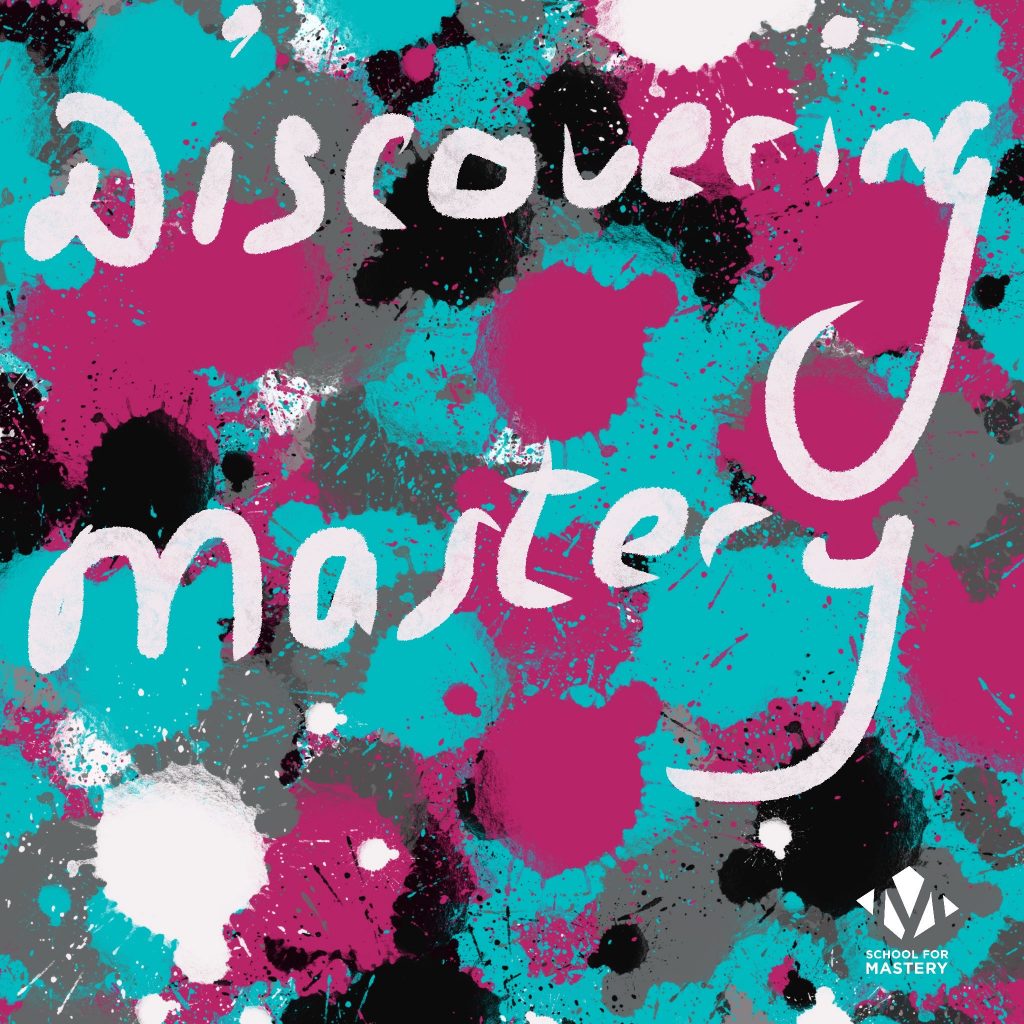




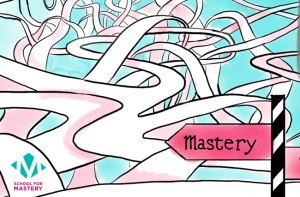
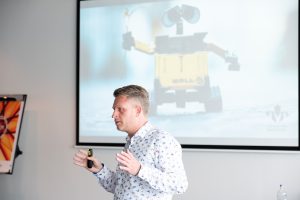
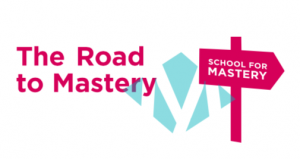

 I am so much intrigued by the fact that technology is said to make our life much easier, but at the same time people seem to make it more and more difficult. People are always “busy” and are led by their inbox or telephone, while at the same time wishing to have a purpose or passion. Why is it so difficult to set your own course and keep it? I also realized that by choosing focus as the topic, it will help me build and keep my own focus in order to set up the School for Mastery. I also decided that the workshop should not last longer than 1.5 hours. So with a clear topic and strict conditions upfront I could start.
I am so much intrigued by the fact that technology is said to make our life much easier, but at the same time people seem to make it more and more difficult. People are always “busy” and are led by their inbox or telephone, while at the same time wishing to have a purpose or passion. Why is it so difficult to set your own course and keep it? I also realized that by choosing focus as the topic, it will help me build and keep my own focus in order to set up the School for Mastery. I also decided that the workshop should not last longer than 1.5 hours. So with a clear topic and strict conditions upfront I could start.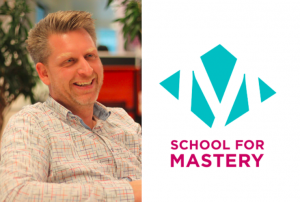
 which means that people aim to reach their full potential as a unique individual. But next to that there is also a growing awareness that we need to take care of our planet and resources. This is not just for all the people but also for the companies who are expected to have a more sustainable impact that simply shareholder value. People want to contribute to something more sustainable.
which means that people aim to reach their full potential as a unique individual. But next to that there is also a growing awareness that we need to take care of our planet and resources. This is not just for all the people but also for the companies who are expected to have a more sustainable impact that simply shareholder value. People want to contribute to something more sustainable.
 The mindset and skills we teach are relevant for everyone to change, transform and increase personal and meaningful impact. Skills like focus, making choices, self reflection, building meaningful contacts, etc. It will be a physical school where in several phases in your life you attend programs to develop your own mastery. The reason why it is physical is that I want to offer an environment that enables quality contact and builds meaningful relationships. People that contribute to the school do that from their own mastery and use it to inspire others.
The mindset and skills we teach are relevant for everyone to change, transform and increase personal and meaningful impact. Skills like focus, making choices, self reflection, building meaningful contacts, etc. It will be a physical school where in several phases in your life you attend programs to develop your own mastery. The reason why it is physical is that I want to offer an environment that enables quality contact and builds meaningful relationships. People that contribute to the school do that from their own mastery and use it to inspire others. on. She had already done quite some research about how work is changing and what it may look like in the future. The main thing I took out of the book was that she writes about 3 shifts that are vital for people and organizations to make to be better prepared for the coming changes in work:
on. She had already done quite some research about how work is changing and what it may look like in the future. The main thing I took out of the book was that she writes about 3 shifts that are vital for people and organizations to make to be better prepared for the coming changes in work: mastery in the early days and what I could derive out if it for mastery today. One painting that intrigued me for instance was the painting of Rubens and Vermeer called ‘The Garden of Eden with the Fall of Man’ which is hanging in the Mauritshuis. A masterpiece created by two different masters both adding their own mastery. A beautiful example of cooperation in which the qualities of two people have created something they would not have been able to create individually.
mastery in the early days and what I could derive out if it for mastery today. One painting that intrigued me for instance was the painting of Rubens and Vermeer called ‘The Garden of Eden with the Fall of Man’ which is hanging in the Mauritshuis. A masterpiece created by two different masters both adding their own mastery. A beautiful example of cooperation in which the qualities of two people have created something they would not have been able to create individually.